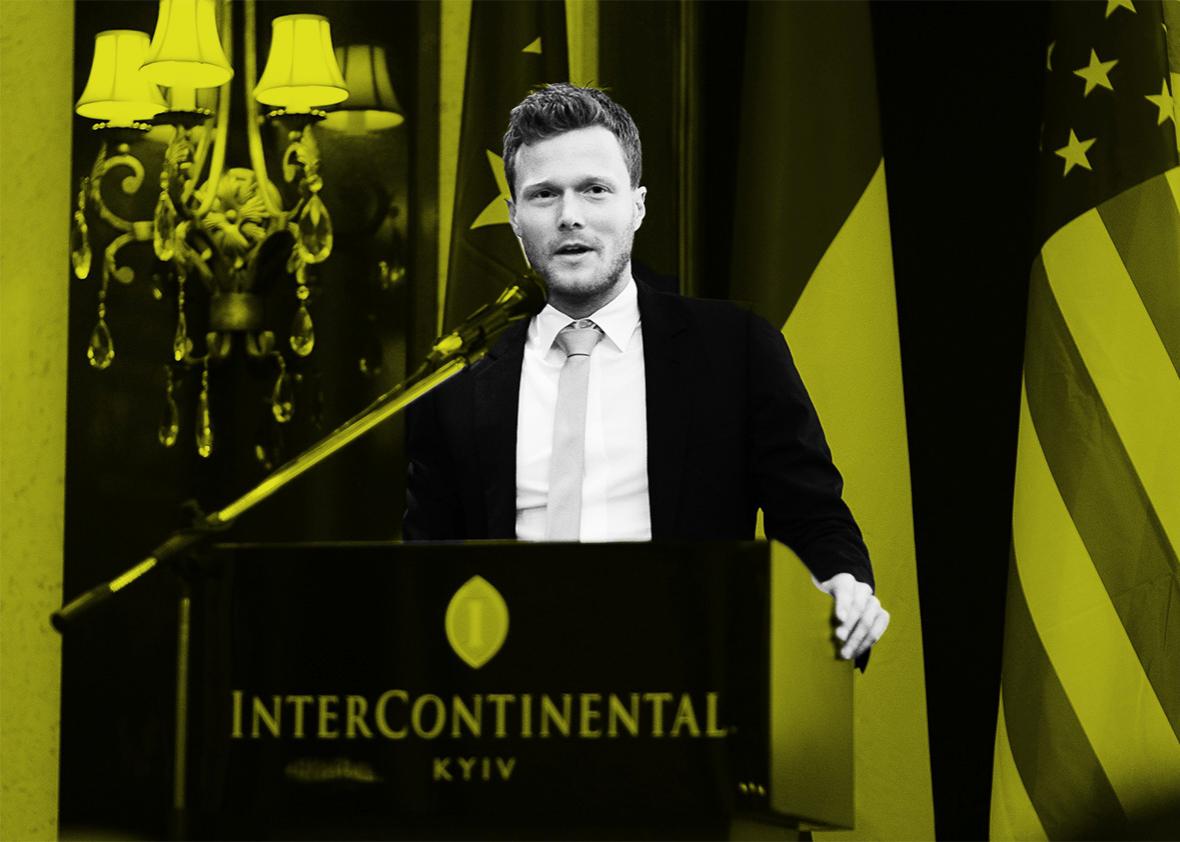Click on the player below to listen to this episode of Working:
Subscribe in iTunes ∙ RSS feed ∙ Download ∙ Play in a New Tab
Slate Plus members: Get your ad-free podcast feed.
This season on Working, we’re speaking to individuals employed in fields potentially imperiled by the Trump presidency. These are the stories of people doing difficult but important jobs—jobs that may get much more difficult and much more important in the years ahead.
“The threat of nuclear war today is probably greater than it’s been at any time since the end of the Cold War,” Matthew Kroenig tells us in this episode of Working. For all that, such dangers sometimes seem a little unreal to him, not least of all because he spends so much time thinking about those technologies. Nevertheless, his own work in the field of nuclear nonproliferation, which he describes in detail throughout this episode, is surprisingly concrete—and unsurprisingly complicated.
“In a way, I have six jobs,” Kroenig says, including professor, consultant, and political adviser, but his “focus has always been on nuclear weapons … and nuclear deterrence.” Those distinct activities end up intertwining in complex ways as he moves from research to policy and back again.
Though much of his work has a scholarly bent—and much of his time is spent in and around his Georgetown University classrooms—his efforts still take on a practical tenor, thanks in part to the city he operates out of. “One of the nice things about being a scholar in Washington, D.C., is that it’s easier to go in and out of government than it is in other places,” Kroenig tells us.
Whenever you’re speculating about policy, Kroenig says, “You’re always trying to predict the future twice and compare those futures to each other.”
To help us better understand what that involves, Kroenig talked us through a recent project—one that involves the risk of 3-D-printed nuclear weapons. As he explains, the first step with such an endeavor often involves learning about the technical side of things. “I’m a political scientist by training, but I’m not a scientist or an engineer,” Kroenig acknowledges. That means he has to listen to the thoughts and ideas of others as he works to identify problems and propose solutions. He then talks us through the process of what happens from there, from publishing a paper on the topic to meeting with people at the State Department to try to encourage bureaucratic action.
By way of explaining why those conversations are so important, Kroenig suggests that it’s because he’s able to take a broader view than many policymakers. As he puts it, “Often, government officials are so busy on the day-to-day work [that] they don’t often have the opportunity to take a step back and say, What are the big, over-the-horizon emerging challenges?”
Of course, as a Republican—one who served in the Romney and Rubio campaigns—Kroenig’s side has been partly out of power for much of the past decade, but he suggests that he’s still been involved in the process at times. That’s partly because, as he puts it, nuclear nonproliferation is a largely bipartisan issue in many ways.
Today, however, he finds himself in a complex position as he contemplates the prospect of a Trump presidency. During the campaign, he signed a letter criticizing the then-candidate’s foreign policy positions. Now, he’s reconsidering that stance. “I think we’re all better off if [Trump] can get the best possible people around him. I think that me and many of my colleagues who opposed him in the past would be willing to go in and help him with policy,” he tells us.
Though Kroenig seems hopeful about where we might be headed, he’s no naïve optimist. In his line of work, you can’t afford to be. As he puts it, “If you assume things are going to be rosy, you’re often caught by surprise.”
Then in a Slate Plus extra, Kroenig talks about nuclear weapons in the movies. If you’re a member, enjoy bonus segments and interview transcripts from Working, plus other great podcast exclusives. Start your two-week free trial at Slate.com/workingplus.
Email: working@slate.com
Twitter: @Jacob_Brogan
